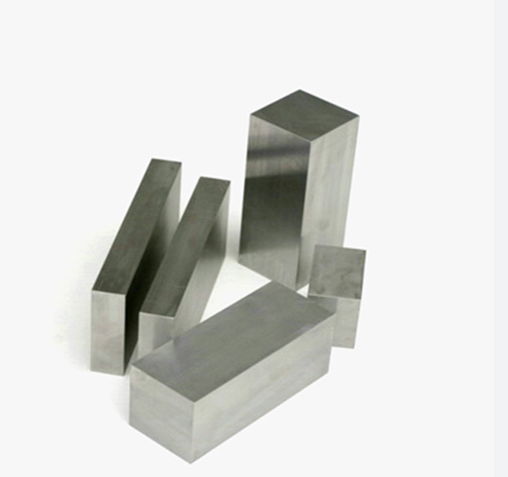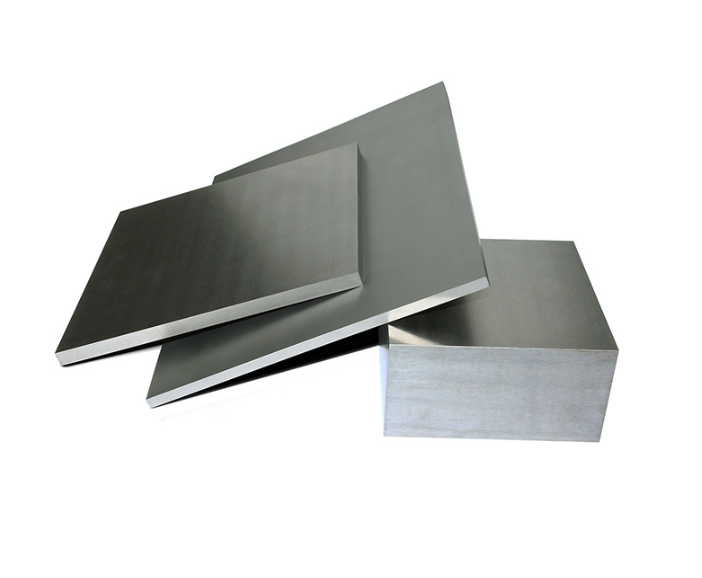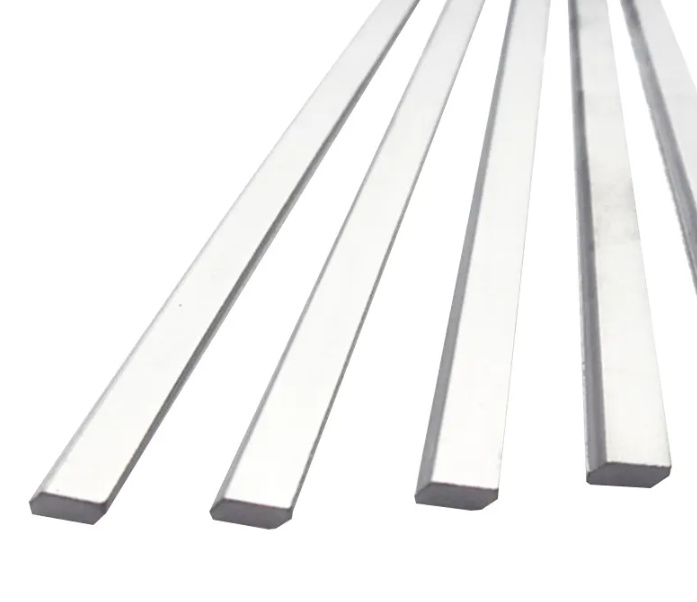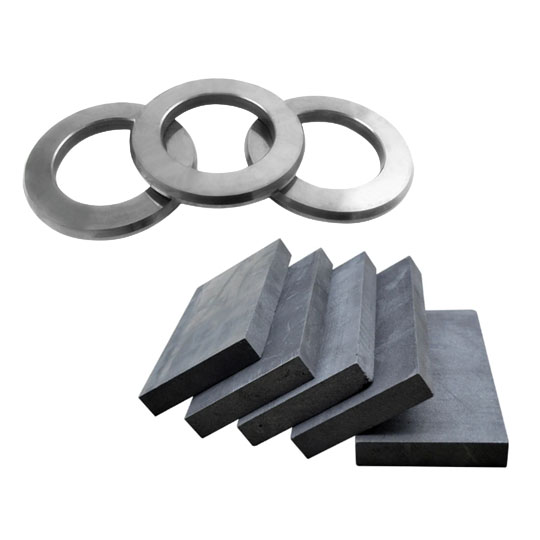Vue d'ensemble
Carbide circular saw tips have transformed the cutting industry, providing unparalleled precision and longevity. These small yet powerful components are essential for various cutting tools, enhancing their performance and extending their lifespan. From woodworking to metalworking, carbide circular saw tips are indispensable in ensuring clean, efficient cuts. This comprehensive guide explores the fascinating world of carbide circular saw tips, discussing their properties, working principles, usage, processing methods, classifications, and market trends. Whether you’re a seasoned professional or a curious newcomer, this article offers valuable insights into the superior capabilities of carbide circular saw tips.
Introduction détaillée
What Are Carbide Circular Saw Tips?
Carbide circular saw tips are cutting tool components made from a composite material, primarily tungsten carbide (WC) combined with a binder metal, typically cobalt (Co). These tips are affixed to circular saw blades, significantly improving their cutting efficiency and durability. Tungsten carbide provides exceptional hardness, while cobalt enhances toughness and resilience.
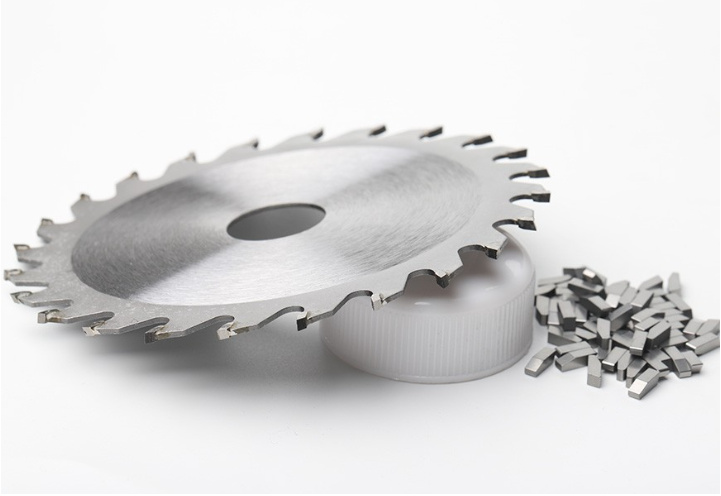
Principe de fonctionnement
The effectiveness of carbide circular saw tips is attributed to their unique material properties:
- Dureté: Tungsten carbide is one of the hardest materials available, enabling superior cutting and machining capabilities.
- Résistance à l'usure: High wear resistance ensures these tips can withstand extreme conditions and maintain their performance over extended periods.
- Stabilité thermique: These tips retain their hardness even at high temperatures, making them ideal for high-speed cutting and demanding applications.
- Résistance à la corrosion: Their resistance to corrosion extends their lifespan, even in harsh environments.
How to Use Carbide Circular Saw Tips
Carbide circular saw tips are versatile and used in numerous applications, including:
- Coupe de bois: Indispensable dans les lames de scies circulaires pour une coupe précise et efficace du bois.
- Découpage du métal: Utilisé dans les scies conçues pour couper les métaux, il permet d'obtenir des coupes nettes et précises.
- Coupe de maçonnerie: Intégré dans les outils de découpe de briques, de tuiles et d'autres matériaux de maçonnerie.
- Découpe des matières plastiques: Utilisé dans les outils pour couper avec précision divers matériaux plastiques.
Méthodes de traitement
The manufacturing of carbide circular saw tips involves several critical stages:
- Mélange de poudres: Combinaison de poudre de carbure de tungstène avec un métal liant, généralement du cobalt.
- Appuyer sur: Shaping the mixture into tips using a pressing machine.
- Frittage: Heating the pressed tips to a high temperature to bond the particles together.
- Brasage: Attaching the carbide tips to the saw blade body through a brazing process.
- Broyage: Le meulage de précision permet d'obtenir les dimensions et l'état de surface souhaités.
- Revêtement: Application de revêtements avancés pour améliorer les performances et la longévité.
Classification et variétés
Carbide circular saw tips are classified based on their composition, grain size, and application. Common classifications include:
- Micro-grain: Pour les applications nécessitant une précision et une netteté élevées.
- Grain moyen: Équilibre entre la ténacité et la résistance à l'usure, convient à un usage général.
- Gros grains: Pour les applications exigeant une ténacité et une résistance aux chocs élevées.
Dynamique du marché
The market for carbide circular saw tips is robust and expanding, driven by increasing demand in manufacturing, construction, and woodworking industries. Key trends include:
- Progrès technologiques: Innovations dans les technologies de revêtement et les formulations de matériaux.
- Durabilité: L'accent est mis de plus en plus sur le recyclage et les processus de production respectueux de l'environnement.
- La mondialisation: Expansion des marchés dans les économies émergentes, entraînant une concurrence et une innovation accrues.
Informations sur le produit
The following table provides detailed information on carbide circular saw tips, including types, composition, properties, features, specifications, sizes, grades, and standards.
Carbide Circular Saw Tips Product Information Table
| Type | Composition | Propriétés | Caractéristiques | Spécifications | Tailles | Grade | Normes |
|---|---|---|---|---|---|---|---|
| Micro-grain | WC + Co (5-8%) | Dureté élevée | Excellente précision | 1-4 mm thickness | Longueurs personnalisables | Ultra-fin | ISO 9001 |
| Grain moyen | WC + Co (6-10%) | Ténacité équilibrée | Applications polyvalentes | 2-6 mm thickness | Longueurs personnalisables | Standard | ISO 9001 |
| Gros grains | WC + Co (10-15%) | Haute résistance aux chocs | Robustesse et durabilité | 3-8 mm thickness | Longueurs personnalisables | Robuste | ISO 9001 |
| Revêtement nanométrique | WC + Co + Nano revêtements | Des performances supérieures | Résistance accrue à l'usure | 1-5 mm thickness | Longueurs personnalisables | Avancé | ISO 9001 |
Description du contenu du tableau
This table highlights the different types of carbide circular saw tips and their respective characteristics. Each type is tailored for specific applications, offering unique benefits in terms of hardness, toughness, and wear resistance. The specifications and standards ensure that users can find the right tip for their precise needs.
Applications
Carbide circular saw tips are essential in a wide range of industries. Here are some of the primary applications:
- Travail du bois: Used in circular saw blades for precise and efficient wood cutting.
- Travail des métaux: Employed in saws and cutting tools designed for various metals.
- La construction: Integrated into tools for cutting masonry materials like bricks and tiles.
- Plastics Manufacturing: Utilized in tools for cutting and shaping plastic materials.
- Fabrication de meubles: Essential for precision cutting in the production of furniture.
- Industrie automobile: Used in cutting tools for manufacturing car parts.
- Industrie aérospatiale: Utilized in high-precision cutting tools for aerospace components.
- Recyclage: Employed in cutting tools for recycling various materials.
Avantages et inconvénients
Carbide Circular Saw Tips: Pros and Cons
The following table outlines the pros and cons of carbide circular saw tips, providing a balanced view of their benefits and limitations.
| Pour | Cons |
|---|---|
| Dureté et résistance à l'usure exceptionnelles | Coût initial plus élevé que celui de certaines autres solutions |
| Longue durée de vie, réduction de la fréquence de remplacement | Nécessite un équipement spécialisé pour le traitement |
| Haute stabilité thermique | Peut être fragile dans certaines conditions |
| Des applications polyvalentes dans tous les secteurs d'activité | Limité à des utilisations spécifiques de haute précision |
| Respectueux de l'environnement avec des options de recyclage | Coûts d'installation initiaux pour les revêtements avancés |
Description du contenu du tableau
This table outlines the advantages and disadvantages of carbide circular saw tips, providing a balanced view of their benefits and limitations. It helps users understand the trade-offs involved in choosing these tips for their applications.
Related Sections
Technologies avancées de revêtement
The development of advanced coatings, such as diamond and nano-coatings, has significantly enhanced the performance of carbide circular saw tips. These coatings provide additional hardness and wear resistance, making the tips even more durable and efficient.
Pratiques de fabrication durable
With increasing awareness of environmental sustainability, the production of carbide circular saw tips is shifting towards eco-friendly practices. Recycling programs and greener manufacturing processes are being implemented to reduce the environmental impact.
Intégration avec les technologies intelligentes
The integration of smart technologies, such as IoT-enabled tools and AI-powered maintenance systems, is revolutionizing the use of carbide circular saw tips. These technologies enable real-time monitoring and predictive maintenance, optimizing performance and reducing downtime.
FAQ
Q1: What makes carbide circular saw tips superior to other materials for cutting tools?
A1 : Carbide circular saw tips are superior due to their exceptional hardness, wear resistance, and thermal stability. These properties allow for precise and efficient cutting, reducing the frequency of tool replacements and maintenance.
Q2: How does the grain size of carbide circular saw tips affect their performance?
A2 : The grain size affects the balance between hardness and toughness. Micro grain tips offer high precision and sharpness, medium grain tips provide a balance of toughness and wear resistance, and coarse grain tips are best for high-impact applications.
Q3: Are there eco-friendly options for carbide circular saw tips?
A3 : Yes, many manufacturers are adopting sustainable practices and recycling programs to reduce the environmental impact of carbide circular saw tip production. Eco-friendly options are increasingly available.
Q4: What industries benefit the most from using carbide circular saw tips?
A4 : Industries such as woodworking, metalworking, construction, plastics manufacturing, furniture manufacturing, automotive, aerospace, and recycling benefit the most from using carbide circular saw tips due to their durability and precision.
Q5: How do advanced coatings enhance the performance of carbide circular saw tips?
A5 : Advanced coatings, such as diamond and nano-coatings, enhance the performance of carbide circular saw tips by providing additional hardness, wear resistance, and thermal stability. These coatings extend the lifespan of the tips and improve their efficiency in demanding applications.
Vous souhaitez acheter des pointes de scie en carbure à un prix avantageux ? Cliquez ici ici.

